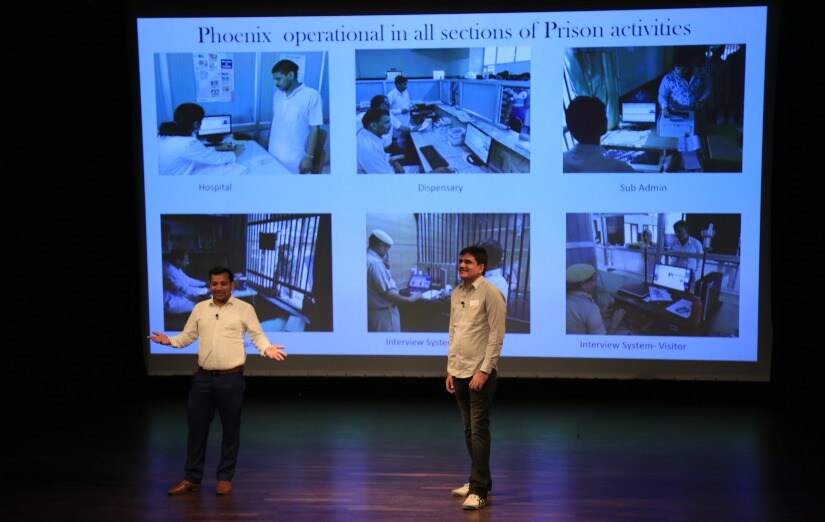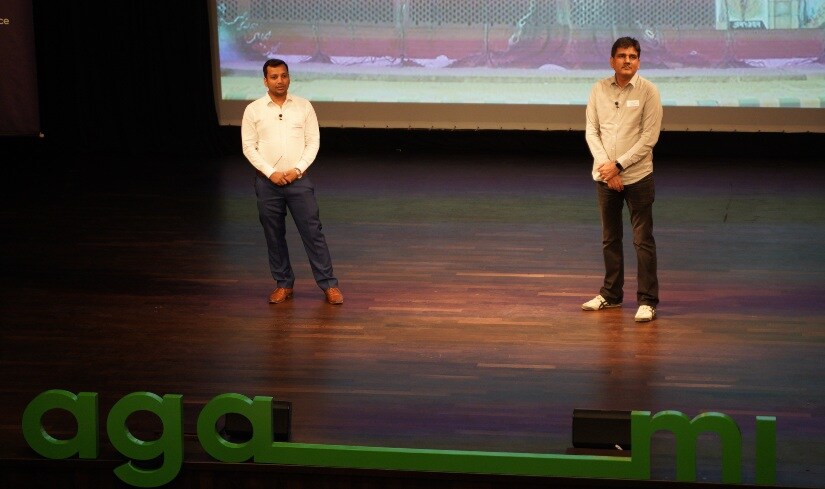Indians are a decidedly punitive populace. Our desire for a bloody pound of flesh is currently on display across social media, with a disturbingly large faction of the country’s citizens celebrating the violent suppression of protests led by college students. A few weeks ago, crowds celebrated with equal fervour, as yet another rape case was swiftly closed with an encounter killing. It is hard to imagine a justice system in India that is constructive in the face of such widespread public approval of state-sponsored violence. But even as the nation seemingly endorses this approach, there are players within the system whose material experiences have changed their outlook. “Everyone makes mistakes,” Deputy Superintendent of Police Harinder Singh intones patiently. “Can you say you haven’t?” Singh has been an officer with the Haryana Police for two decades now. In his time on the force he has seen several inmates and has an intimate understanding of the system at its most public facing. Bollywood would tell us that every police officer is either all honesty in khaki or a moustache-twirling villain thwarting the rapscallion hero’s dreams. But Singh seems a far cry from either of these extremes. Instead, this law enforcement official has a more kindly view of those who have come up against the judicial system. “I believe the worst time in a man’s life is when he goes to jail. It is at this time that society must look after him. Ten percent of people are actually criminal. I believe 90 percent of people have been caught at a bad time in their life, or were overcome by anger, or gave into greed. They committed a crime in the heat of the moment,” he says. “First offenders should be jailed only in the rarest of cases. Look at Amit Mishra. If he had not gone to jail, he would have been settled. By being jailed, his entire life changed.” [caption id="" align=“alignnone” width=“825”]  While incarcerated, Amit Mishra — a software engineer accused of dowry harassment (charges that the court acquitted him for 14 months later) — built an enterprise resource planning (ERP) platform that fully automates all prison operations. Photograph courtesy Agami[/caption] Singh is referring to his fellow speaker Amit Mishra, at the recent Agami Summit, a conference in Bengaluru that brought together multi-disciplinary changemakers to address the future of law and justice systems. This odd couple of jailor and jailed are the first speakers to kick off the event and they immediately capture the audience’s imagination with their prison-made piece of technology. While incarcerated, Mishra — a software engineer who met Singh when remanded into custody upon being accused of dowry harassment (charges that the court acquitted him for 14 months later) — built an enterprise resource planning (ERP) platform that fully automates all prison operations. From purchases made in the canteen by inmates to an at-a-glance view of an inmate’s whereabouts at any given time thanks to the biometric tracking system, his platform Phoenix is an example of Make in India that goes beyond a marketing jingle. The software does not rely on internet connectivity or access to data stored in the cloud. Instead it responds locally to real-time needs with real-time data in an instant. It also reduces reliance on error-prone human labour, bringing down operational costs for an already overburdened system. Not exactly the mountain getaway we imagine our first novel will be written at, and likely a far sight more productive. Mishra is more pragmatic. “When I first came to jail, I was traumatised, like anyone would be. Sir [Singh] started counselling me, saying that I should do something. At that point, I didn’t really trust anyone, I just wanted to get out,” says Mishra. “But Sir made it very clear — he told me that neither did he have the power to release me, nor would I be able to wish my way out. He said there were plenty of problems within the jail that I could apply myself to, instead of wasting time. That’s when I decided to do something useful.” The Indian judicial system is a combative one. The police enters middle-class mindsets during passport verifications or in the course of social media-led outrage over encounter killings. Occasionally, an aurally blessed law enforcement officer will birth several memes celebrating Indian jugaad to the melodious soundtrack of thain-thain. In such an environment, Singh is a rarity. “Sir is one of a kind. Usually, the police would just dole out two whacks of the baton and send you on your way, but his thinking is unique,” says Mishra. But Singh is quick to quash any notions of preternatural progressivism. “My thinking is not unique. My thinking has changed with time. When I first joined as a prison officer, I thought very negatively about the judiciary. I felt that bail was given too easily and that if someone has committed a crime, they must be punished. But after 20 years on the force, I now believe that in most cases a first offender should be given bail. Then he fears reoffending, because he knows he will go to jail.” [caption id=“attachment_7800071” align=“alignnone” width=“825”]  Singh’s unusual outlook permeates every stage of the judicial process, and his thinking is not limited to dinner table conversation. Photograph courtesy Agami[/caption] This is not an academic discussion on ethics in the antiseptic setting of a grad school symposium for Singh, rather a growth in thinking that is a result of his practical experiences. He talks about the time he pulled prison data on a whim. Three hundred and fifty people had entered his prison during the randomly selected month. Out of these, 150 people were released on bail within ten days. He wondered what these people learned during their stay and concluded that while they carried the societal stigma of having been in jail, their fear of jail was now gone, likely increasing the chances of reoffending. He also pointed out that the community also suffers alongside the incarcerated. “A person doesn’t enter prison alone,” Singh said, “I am not commenting on whether he is good or bad, guilty or innocent. But he has people who care for him and he has people he cares for. His family has nobody when he is remanded. Where do they get their daily roti?” Singh’s thinking is not limited to dinner table conversation either. It translates into tangible action with real life outcomes. Mishra is the most visible example. Five years after his release, he has set up a software technology firm that employs ex-inmates. They receive on-the-job training and an experience certificate, along with a respectable salary. A few of them have moved on to brand name companies where they earn at industry standard. This is a far cry from the narrative that Singh sees playing out when the law is too quick to punish and where reoffending seems to be the only option left to survive in a society that rejects anyone who has made a mistake. Singh’s unusual outlook permeates every stage of the judicial process. From wanting more leniency for first-time offenders to partnering with a convict to better canteen accounting systems to increase transparency, it is his attitude that kept inmates like Mishra going during their time in jail. “The mental effect of [building Phoenix] on me was very positive. It occupied my time completely because I kept encountering new challenges. I really enjoyed it, in fact,” Mishra says with a laugh, “It passed the time, because now I had a puzzle to solve and I just kept at it day after day.” For Singh, it is simple. “No matter who it is, no one is happy when they come to jail, whether it’s a crorepati or someone who is destitute… You have to ask yourself — do you want reformation or do you just want to punish them? If the goal is to reform, then that cannot happen by wielding the truncheon.”
While incarcerated, Amit Mishra — a software engineer accused of dowry harassment (charges that the court acquitted him for 14 months later) — built an enterprise resource planning (ERP) platform that fully automates all prison operations. DSP Harinder Singh, who prompted Mishra to spend his time in prison productively, has a kindly view of those who have come up against the judicial system.
Advertisement
End of Article


)

)
)
)
)
)
)
)
)



